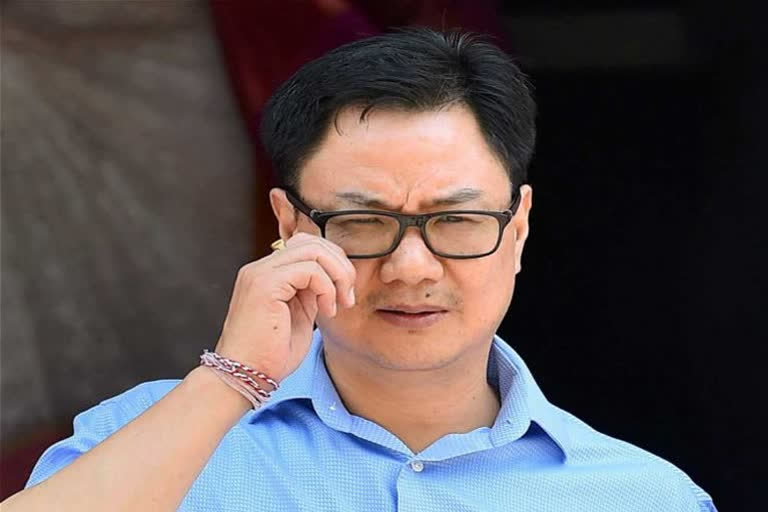Gandhinagar: A lively relationship between the judiciary, the legislature and the executive is vital in a democracy, Union Law Minister Kiren Rijiju said here on Sunday even as he dismissed the perception of any turf war among these three organs.
Speaking at the Gandhinagar-based National Forensic Sciences University (NFSU) after inaugurating the new School of Law, Forensic Justice and Policy Studies, Rijiju said "it is for the government to implement whatever judges say and think and this should not be done out of fear for the contempt of court alone".
"The judiciary, the executive and the legislature are separate organs, but we all work for the country. People on the outside think we are engaged in a turf war, fighting for a domain, but that is not the case. We all are working for the interest of the nation," Rijiju said.
"In the Supreme Court, high courts and even in the lower judiciary, we get to listen to commentaries of judges during (court) hearings, and even anguish and satisfaction aired by them through the media. It is for us to implement whatever judges say or think," the minister said.
Rijiju said it was for the executive to "judiciously implement" a good judgment of the court of law.
"In a democracy, it is very important for us to have a lively relation between us (the judiciary, executive and legislature)...It is vital for us to have a lively relationship," he said.
Supreme Court judge Justice MR Shah, Gujarat High Court's Acting Chief Justice R M Chhaya and several judges and retired judges of the high court and the Supreme Court were present on the occasion along with Gujarat Chief Minister Bhupendra Patel, state Law Minister Rajendra Trivedi and MoS for Home Harsh Sanghavi.
Rijiju further said the "impression" that laws are not being implemented for a long time has been removed to a great extent under the Narendra Modi government.
Also Read: Govt will introduce new bill on arbitration in winter session: Law minister
"We feel good to hear good things from judges. But judges will praise us only when we do good work," the Union law and justice minister said and assured judges the government will work "with full transparency and accountability."
He said the "ease of getting justice" should also be talked about like the ease of doing business and the ease of living.
"Justice delivery system should not suffer merely for want of a simple input which can be handled by the application of science," he said.
Rijiju said the NFSU's School of Law, Forensic Justice and Policy Studies will play a critical role in a situation like this to help catch up with technologies for the fast delivery of justice.
Rijiju also suggested the NFSU enter into an understanding with the National Dope Testing Laboratory (NDTL) so that the latter does not meet the "fate of suspension of its accreditation" by the World Anti-Doping Agency. "...Otherwise it becomes a huge controversy when young boys and girls are unnecessarily tested (positive) and their lives are spoiled".
"There are no proper guidelines, and sometimes the testing process itself is questionable. So, we have to be very, very careful when it comes to science, and as I said, we have no shortage of manpower in India. We are a leading nation, we just have to manage it professionally," he said.
Supreme Court judge Justice MR Shah said, "the legal education carries the weight on its shoulders to creating responsible citizens in the country (who) are major catalysts for delivering democratic ethos through social justice and the political and economic welfare".
"The poor and weaker sections should be able to seek justice keeping the morals and discipline intact. Legal education has a significant role to play," he said.
PTI



